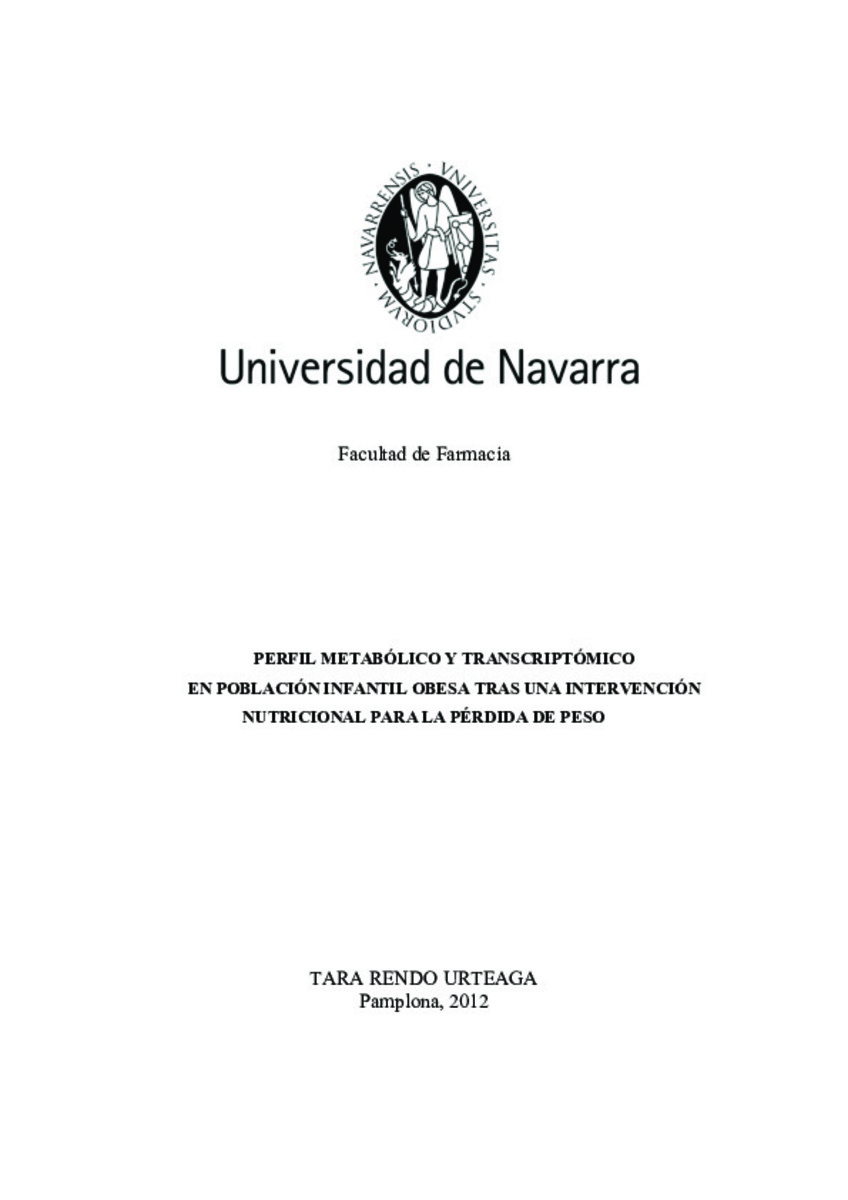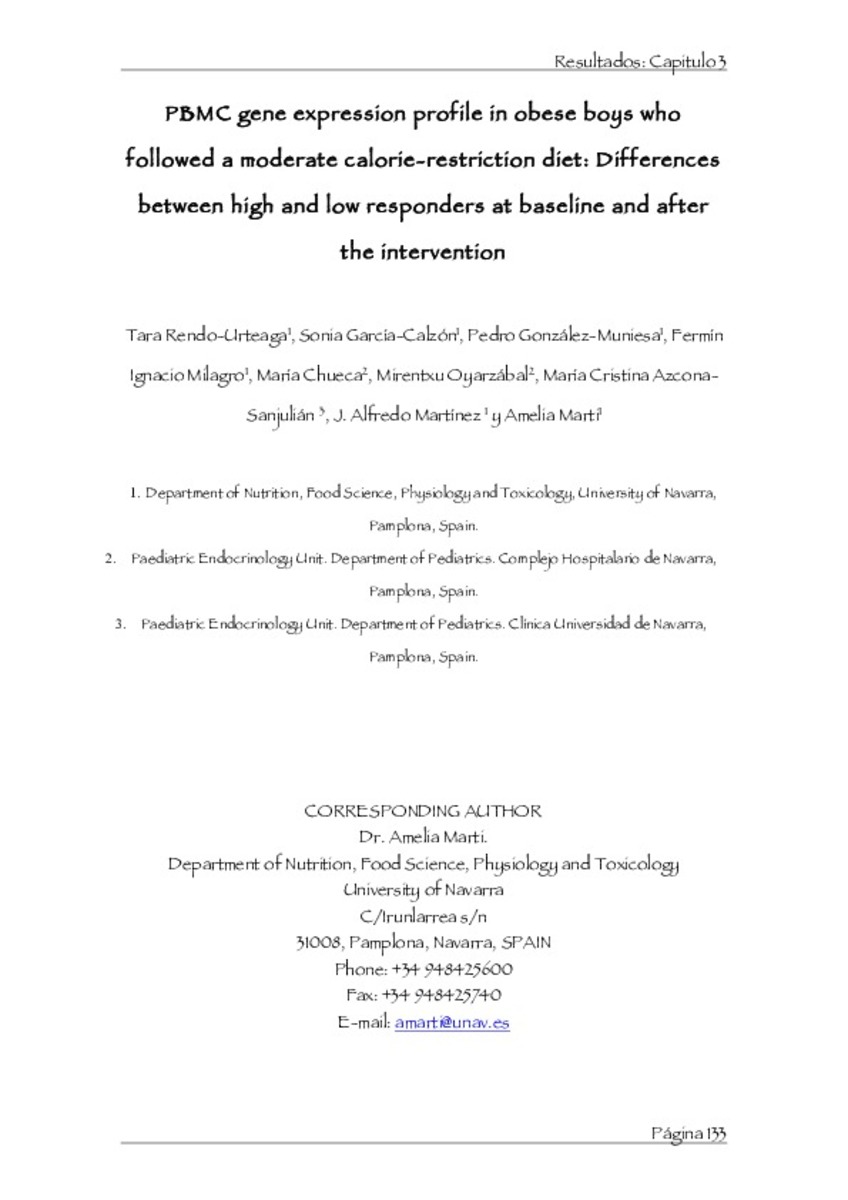Perfil metabólico y transcriptómico en población infantil obesa tras una intervención nutricional para la pérdida de peso
Palabras clave :
Ciencias de la nutrición
Población infantil
Materias Investigacion::Farmacia
Materias Investigacion::Ciencias de la Salud::Nutrición y dietética
Niños
Genética humana
Fecha de publicación :
2015
Fecha de la defensa:
12-dic-2012
Editorial :
Servicio de Publicaciones de la Universidad de Navarra
Cita:
RENDO URTEAGA, Tara. “Perfil metabólico y transcriptómico en población infantil obesa tras una intervención nutricional para la pérdida de peso”. Martí, A. y Martínez, A. (dirs.). Tesis doctoral. Universidad de Navarra, Pamplona, 2012
Aparece en las colecciones:
Ficheros en este ítem:
Descripción
Tesis doctoral Tara Rendo Urteaga
Descripción
Capítulo 3, Resultados
Estadísticas e impacto
0 citas en

0 citas en

Los ítems de Dadun están protegidos por copyright, con todos los derechos reservados, a menos que se indique lo contrario.








